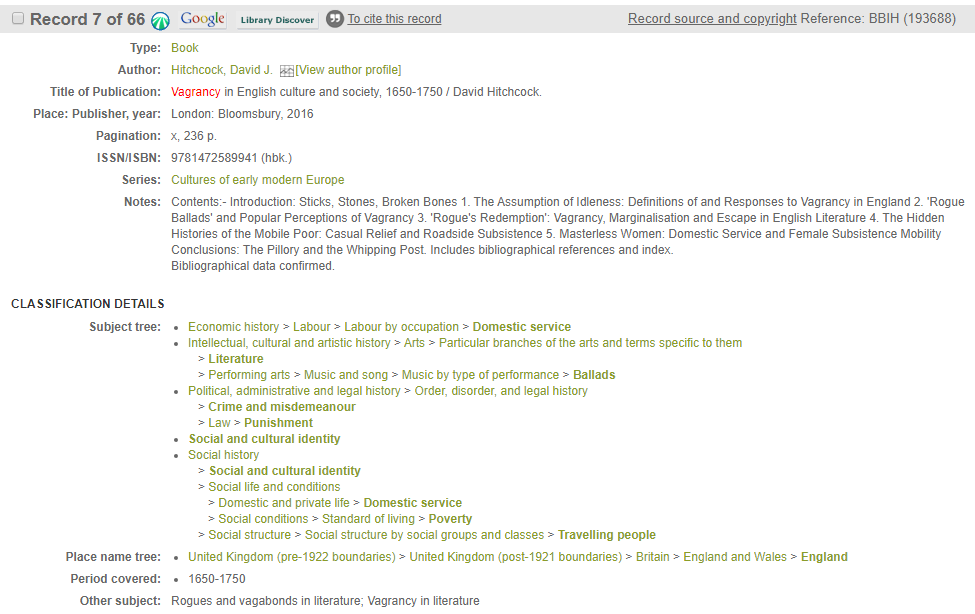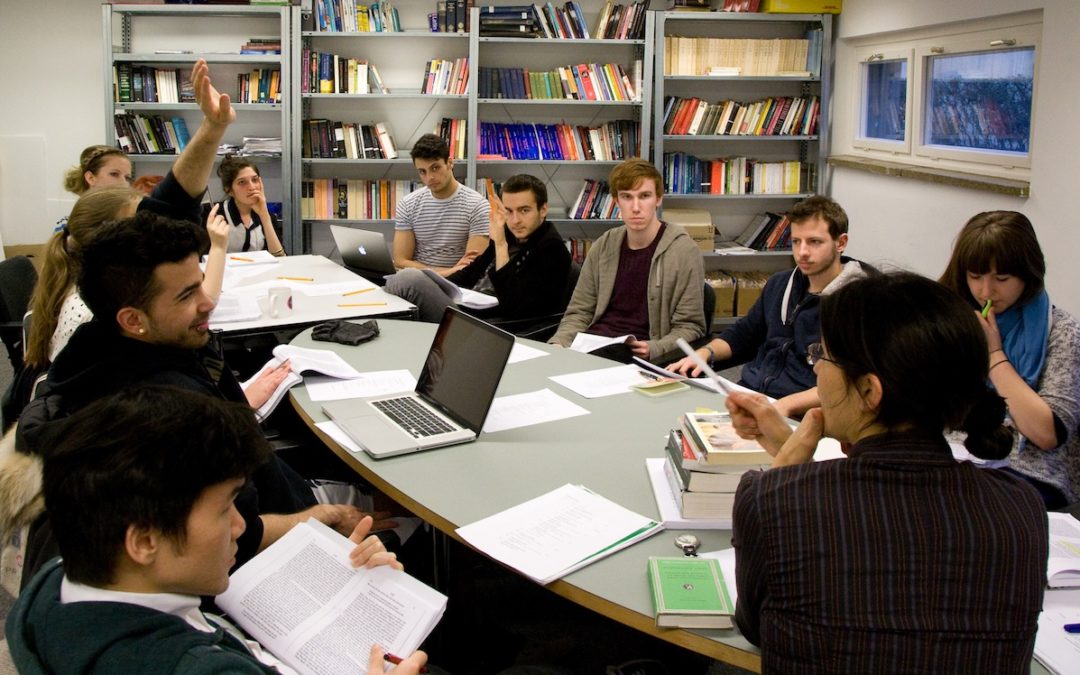By David Hitchcock
We spotted early modern historian David Hitchcock speaking about BBIH on Twitter, so we got in touch and asked him how he used it as an academic researcher and teacher. Here’s what he wrote …
I doubt anyone has ever composed a hymn in praise of a specialist research bibliographic database, but someone should seriously consider it. If you’re an academic historian of Britain, Ireland, or indeed of the histories of colonialism, migration, trade, and so on which connect those states to many other places around the globe, then you probably know about the Bibliography of British and Irish History (BBIH). You probably use it all the time.
I remember my introduction to this resource in 2007 while undertaking an MA at Ottawa, via my then-supervisor Richard Connors. I logged in and rooted around, as one does with databases, and quickly discovered why Rich was so keen on the resource. The BBIH is like a ‘Lexis Nexis’ for my field of academic history. It is an up to date, keyword searchable, specialist historical research bibliography of pretty much everything published on British and Irish history, covering all the main periods of recorded historical time. I don’t know whether it is exhaustive (I rather doubt that is possible) but it sure feels close.
The search engine is robust and seems tailor-made for historians; you can control it by the chronological range that you want to research (I am always inputting ranges such as 1500-1700, or 1600-1850); you can keyword search both titles and indexed contents, and the journal and publisher coverage is pretty impressive. You can export the records you want in a bunch of different formats, heck the thing will even google or worldcat search a book for you with a single click, or link you directly to the article and journal so you can log in and fetch a copy.

The BBIH is how I personally start my literature searches, how I build up my digital bibliographies in Zotero and other notation software, and it is in turn how I teach my advanced undergraduates to conduct research and how to use specialist databases.
I particularly emphasise the BBIH for my dissertation and special subject students; the advanced undergraduates who are learning how to construct and conduct detailed independent projects, students who I want out there going ‘beyond the brief’ and certainly travelling beyond the resources I’ve listed for them as a starting point.
My dissertation students all have a similar experience in their first or second meeting with me; where I open the Bibliography, walk them through the process of a simple topic search, and show them how to pursue the sources they want to get access to. The BBIH is my answer to students any time I hear a complaint that they ‘cannot find anything written about [a topic].’ If they are writing about Britain or Ireland in some capacity, then I send them to look at it, and lo and behold, it generally turns out many things have indeed been written, and they are off to the races.
My wish list for a resource like the BBIH is only one item long: can it be even bigger? Cover even more? I know little enough about how the database is maintained and updated but I can imagine it is a herculean task. Just look at the level of subject detail that connects my first book to the scholarship of others:

Think about just how much digging you can do with that level of connectivity. Someone had to create that record manually, and I can well imagine the sheer amount of hard graft it must take to keep the bibliography up to date.
I think the Bibliography of British and Irish history is a model example of a good scholarly resource, the kind of thing libraries shouldn’t hesitate to pay for, the kind of resource that other fields should replicate. It performs all sorts of important functions for us professionals, but I think we can see its real value in the faces of students when they conduct their first search, and realise just how much scholarship there is to find and read, argue with or against, love or hate, or both; when they can see this vast scholarly conversation rumbling on in front of them, and dive right in.

Dr David Hitchcock is a senior lecturer in early modern history at Canterbury Christ Church University and he specialises in the history of early modern poverty. His first book is titled Vagrancy in English Culture and Society, 1650-1750 and came out in 2016. He has published more recently (2018) in Cultural and Social History and New Global Studies on ‘vagrant Quakers’ and penal transportation of the poor, respectively. He is currently working on two books, a handbook on early modern poverty in Europe, and a monograph on ‘welfare colonialism’ in the early modern Atlantic world.
About the Bibliography of British and Irish History

The Bibliography of British and Irish History (BBIH) is the largest and most comprehensive guide available to what’s been written about British and Irish history, from the early 1900s to 2020.
It’s an essential resource for research and teaching, providing up-to-date information (and links) to more than 615,000 History books, articles, chapters, edited collections and theses.
New records are added in three annual updates. These records are searchable by a wide range of facets including: title, author, chronology, date and form of publication, historical topic and geographical region.
The Bibliography is a research project of the UK’s Institute of Historical Research and the Royal Historical Society, and is published by Brepols. BBIH is a subscription service and is available remotely via university and research libraries worldwide.

